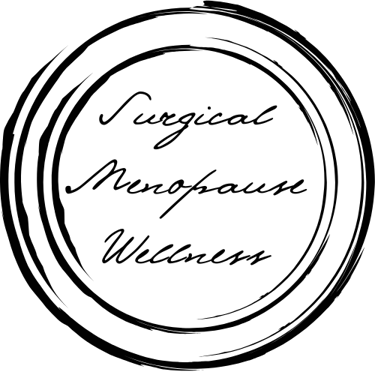The Top 4 Most Damaging Endocrine Disruptors in Your Home—And The Best Replacements
Hormonal balance is crucial for every woman, but for those in surgical menopause, it’s even more important to be mindful of environmental toxins that can disrupt the endocrine system. Many everyday products contain endocrine disruptors, chemicals that interfere with hormone function, leading to issues like fatigue, mood swings, weight gain, and increased menopausal symptoms.
2/7/20253 min read


Hormonal balance is crucial for every woman, but for those in surgical menopause, it’s even more important to be mindful of environmental toxins that can disrupt the endocrine system. Many everyday products contain endocrine disruptors, chemicals that interfere with hormone function, leading to issues like fatigue, mood swings, weight gain, and increased menopausal symptoms.
If you’ve had a hysterectomy with ovary removal, your body is already adjusting to the absence of natural estrogen. The last thing you need is external toxins making things worse! Fortunately, you can reduce exposure to endocrine disruptors by swapping out harmful products for safer alternatives.
Let’s dive into the four worst endocrine disruptors in your home, how they affect your health, and the best available replacements that will help you create a toxin-free environment.
What Are Endocrine Disruptors, and Why Do They Matter?
Endocrine disruptors are chemicals that interfere with your hormones, mimicking or blocking natural hormonal signals in the body. These substances are commonly found in plastics, cosmetics, cleaning supplies, and even food packaging.
For women in surgical menopause, these chemicals can:
✔ Worsen hormonal imbalance (exacerbating hot flashes, brain fog, and mood swings)
✔ Trigger weight gain by disrupting metabolism
✔ Increase inflammation and oxidative stress, leading to joint pain and fatigue
✔ Affect sleep quality, making it harder to rest and recover
By eliminating the worst offenders and choosing safer alternatives, you can support your body’s natural healing process and feel your best during this phase of life.
1. BPA in Plastics 🛑
Why it’s harmful:
Bisphenol A (BPA) is a synthetic estrogen found in plastic containers, water bottles, and canned food linings. BPA has been linked to:
❌ Increased estrogen dominance (which can worsen menopause symptoms)
❌ Weight gain and insulin resistance
❌ Thyroid dysfunction and metabolic disruption
The Best Replacement: 🌿
✅ Glass or Stainless Steel Water Bottles
Instead of plastic bottles, switch to a BPA-free, glass, or stainless steel water bottle. They are reusable, safe, and keep your drinks free from harmful chemicals.
🔗 Best-Selling BPA-Free Glass Water Bottle on Amazon
✅ Silicone Food Storage Bags
Ditch plastic storage containers and opt for food-grade silicone bags to keep your meals safe.
🔗 Shop the Top-Rated Silicone Storage Bags on Amazon
2. Phthalates in Fragrances 🚫
Why it’s harmful:
Phthalates are chemicals used to stabilize synthetic fragrances in perfumes, candles, air fresheners, and personal care products. They are hormone disruptors that can:
❌ Impair estrogen and testosterone balance
❌ Worsen hot flashes and sleep disturbances
❌ Contribute to headaches, fatigue, and respiratory issues
The Best Replacement: 🌿
✅ Essential Oil Diffusers
Instead of artificial air fresheners, switch to an essential oil diffuser with pure plant-based oils for a non-toxic and relaxing scent in your home.
🔗 Best Essential Oil Diffuser with Timer on Amazon
✅ Clean Fragrance-Free Skincare & Perfume
Choose phthalate-free, natural perfumes or essential oil roller blends to enjoy a beautiful scent without toxic chemicals.
🔗 Top Phthalate-Free Perfume for Women on Amazon
3. Parabens in Personal Care Products ⚠️
Why it’s harmful:
Parabens are preservatives found in lotions, shampoos, deodorants, and cosmetics. They mimic estrogen in the body, which is especially concerning for women in surgical menopause, as they can:
❌ Disrupt hormone regulation
❌ Increase skin sensitivity and irritation
❌ Contribute to breast cancer risk
The Best Replacement: 🌿
✅ Paraben-Free Shampoo & Conditioner
Switch to a paraben-free, sulfate-free haircare brand to reduce toxin exposure.
🔗 Best Paraben-Free Shampoo for Healthy Hair on Amazon
✅ Natural Deodorant
Ditch aluminum and parabens in deodorants—opt for a natural alternative with baking soda, magnesium, or coconut oil.
🔗 Top-Rated Aluminum-Free & Paraben-Free Deodorant on Amazon
4. Non-Stick Cookware (PFOA & PFAS) ⚠️
Why it’s harmful:
Most non-stick cookware is coated with PFOA and PFAS chemicals—which can leach into food when heated. These “forever chemicals” are linked to:
❌ Hormonal imbalance & thyroid dysfunction
❌ Increased cancer risk
❌ Liver and kidney stress
The Best Replacement: 🌿
✅ Ceramic or Cast Iron Cookware
Choose PFOA-free, non-toxic ceramic cookware or seasoned cast iron pans for a safer cooking experience.
🔗 Best Non-Toxic Ceramic Cookware Set on Amazon
✅ Stainless Steel Baking Sheets
Instead of non-stick baking sheets, use stainless steel pans for a chemical-free alternative.
🔗 Top-Rated Stainless Steel Baking Pans on Amazon
Final Thoughts: Small Changes, Big Impact
Switching to non-toxic products doesn’t have to be overwhelming! Start small—replace one endocrine disruptor at a time and gradually transform your home into a safer, healthier space.
💡 Remember:
✔ Avoid BPA plastics—choose glass or stainless steel instead.
✔ Ditch artificial fragrances—use essential oils and phthalate-free products.
✔ Go paraben-free in skincare and personal care.
✔ Upgrade to non-toxic cookware for healthier meals.
Your body will thank you for reducing its toxic burden, helping you feel more balanced, energized, and in control of your surgical menopause journey.
Surgical Menopause Wellness
Empowering women through surgical menopause resources and wellness practices.
Disclaimer
The information provided on this website is for informational and educational purposes only and is not intended as a substitute for professional medical advice, diagnosis, or treatment. This content should not be used to diagnose, treat, cure, or prevent any health condition or disease. Always consult with a qualified healthcare provider before making any changes to your health regimen, starting new treatments, or if you have questions regarding a medical condition. Reliance on any information provided by this website is solely at your own risk.
© 2024. All rights reserved.
